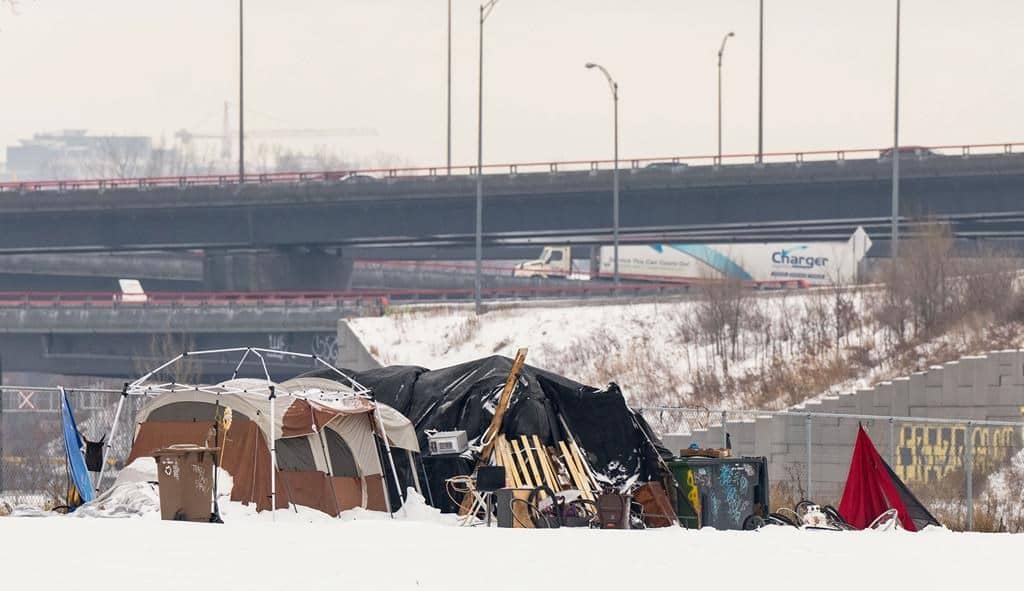As more individuals find themselves forced to live in houses in the winter, social staff on the front lines of poverty in Montreal say they feel more useless. For the past 20 years, Stéphanie Lareau has been providing assistance to the poor in Montreal. Usually, the houses begin to dissipate by December, but this year is diverse, she said. This will be my second time seeing how many of them are there and how few places are there. By August, I was calling homes, and they were always full. That never used to occur before”, said Lareau. As temperature drop in Montreal, poor shelters are overcrowded and warming channels — furnished with seats, never beds— are at full potential. Unhoused people wander around train stations, while some sleep standing up in 24-hour restaurants. Many people are pitching houses to survive the winter. The circumstance has now proved fatal. On Dec. 15, a 55-year-old poor man was found dead in a Montreal area. Authorities believe he does had died of cold. Alison Meighen-Maclean, who has worked with poor people for the past decade at the local health specialist in east-end Montreal, said people desperately need roof over their faces. The heat stations the town has set up this time don’t address the need because, she said, they are just meant to keep people inside for a brief period of time. In early December, the Quebec government said it had housed 1, 000 of the country’s poor persons — a community that stood at about 10, 000, as of 2022. In Quebec, in January 2025, a fresh number of people will be residing there. Lionel Carmant, the minister of social services in Quebec, claimed that organizations that help the poor were responsible for the obvious reduction. He also praised a federal initiative that assists people in finding accommodation while offering mental health services. For Meighen-Maclean, the cover and poverty problems are tied up. ” In today’s market, it’s getting back into the]housing ] market once you’ve been rejected that’s very difficult”, she said, explaining that many are homeless for the first time. Some, she claimed, were evicted or forced to quit their jobs because of social aid. ” Anyone who works with the poor is feeling a lot of impotence on a regular basis”, said Meighen-Maclean. Lareau said the increase started to rocket during the COVID-19 pandemic, adding that the portrait of poverty has changed. In some cases, elderly being renovicted from their rooms, she said. ” Maybe they don’t actually know the rules or their freedom, so they get a little screwed”, she said. A tenant may refer to a situation as” Renoviction” as the reason for an evacuation when they claim the need for substantial repairs. Carmant pointed out that the government has increased funding for tackling homelessness, from a five-year budget of$ 280 million to$ 410 million. ” This year, we added another$ 15 million, and with federal investment, it’s going to be another$ 25 million for the next two years. We’ve improved the program several times, both in terms of disaster actions and housing facilitates”, he said in an exam. Trending Then
European Christmas business deaths: What we know about the assume
Engineer who worked on the tech he helped create and raised constitutional issues has passed away.
Carmant added that he wants to see more welcoming accommodation in the upcoming years. ” We talk a lot about homes, but we have a lot of people who are still in homes after 12, 18, 24 weeks”, he said, adding the goal is to offer people help once they leave a house so they don’t return to the city. ” When they’re willing to be more independent, we put them in what we call friendly cover, where they have their own kitchen… there are no typical areas, it’s actually like an room”, he said. Laurie Mercure, mind of the simultaneous disorders, alcoholism and poverty section at the east-end Montreal health expert, welcomes the promising applications. Nevertheless, she claimed that too many people are falling through the cracks, particularly seniors who require adapted rooms for their needs, lovers and those who own pets, who also face additional challenges in finding housing. Meighen-Maclean, Mercure, and Lareau all pointed out that community businesses and action workers are fostering trust with unhoused people, even if that means obtaining a health insurance card, which for some may be their only form of identification. Sending caregivers into the area also makes a difference. ” I think we can reduce a person’s state from deteriorating by going into their surroundings. It doesn’t matter if it’s a house or a tent, with medical treatment we can possibly prevent hospitalization or a trip to the emergency room”, said Meighen-Maclean, explaining that for support results in fewer 911 calls and de-escalation. One of the goals, she said, is to accompany the person to services, so they can access care just like Quebecers who aren’t on the street. ” We’re seeing improvements in access to services. But it’s not perfect. There’s still work to be done”, she said.

